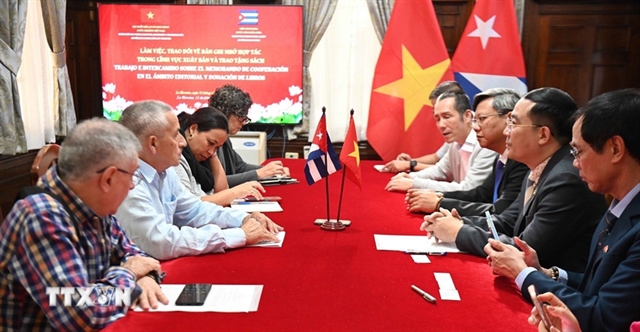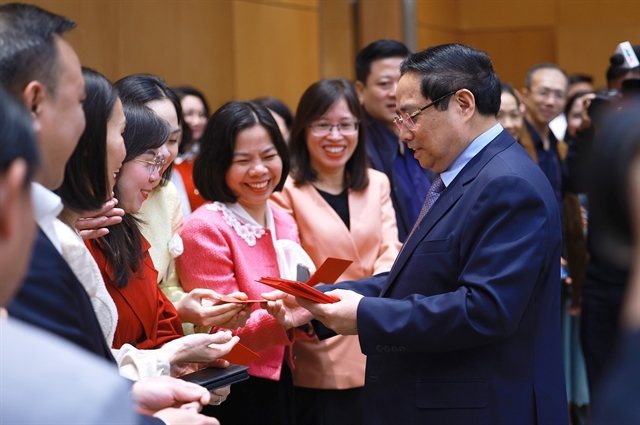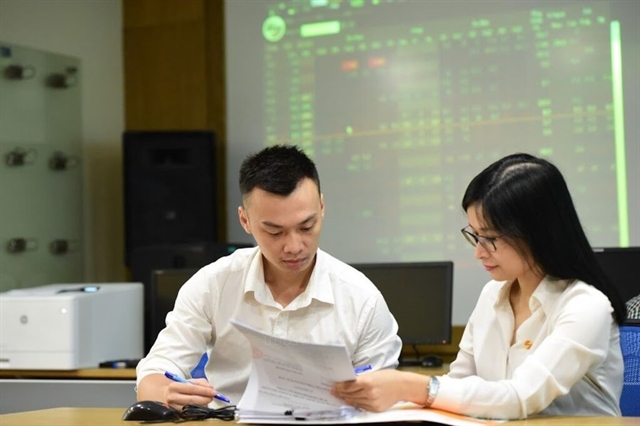 Economy
Economy
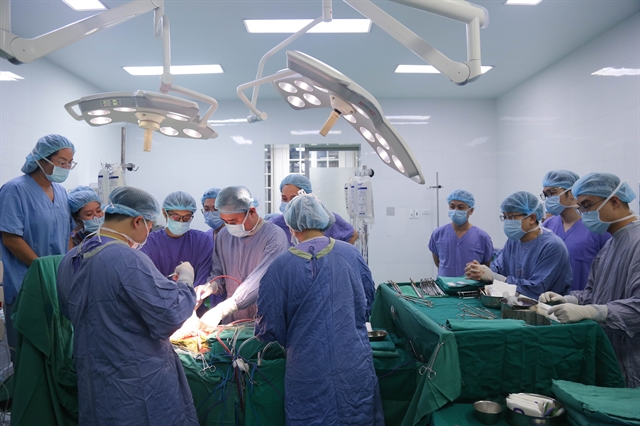
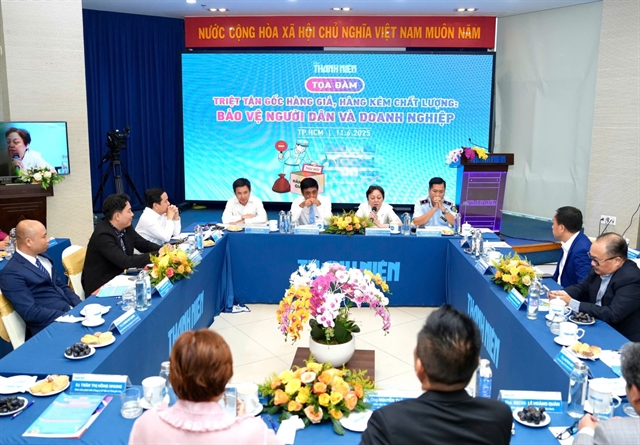
|
| A seminar on “Eradicating Counterfeit and Substandard Goods at the Root: Protecting Citizens and Businesses” being held in HCM CIty on June 11. — Photo Độc Lập |
HCM CITY — Fake goods and knock-offs are posing serious risks to public health and causing enormous economic damage, and drastic solutions and coordinated efforts are required from authorities, businesses and consumers to combat them, a seminar heard in HCM City on Wednesday.
Speaking at “Eradicating Counterfeit and Substandard Goods at the Root: Protecting Residents and Businesses” organised by Thanh Niên (Young People) newspaper, Deputy Editor-in-Chief, Lâm Hiếu Dũng, highlighted the alarming spread of fake goods.
“From medicine and supplements to cement, clothing and electronics almost anything can be counterfeited.
“Even seemingly trustworthy hand-carried imports can be cleverly faked. What is more concerning is that consumers may unknowingly support criminal networks by buying these products.
“Products and services are the intellectual property and lifeblood of a business, representing years of investment in research, time, effort, and capital. Yet once released into the market, they are often imitated or counterfeited, leading to consumer confusion and mistrust when low-quality fakes underperform.
“While market integration offers consumers greater choice, smuggled and fraudulent goods are severely damaging legitimate, officially imported products.”
The consequences of counterfeit goods in the medical field are arguably dangerous.
Lê Hoàng Quân, deputy director of the Gia Định General Hospital, said counterfeit drugs represent a global public health threat.
The World Health Organization defines falsified medicines as those that deliberately misrepresent identity, composition or origin, and they often include high-demand items such as antibiotics, cancer drugs, HIV/AIDS medications, and weight-loss pills.
“Most consumers cannot identify counterfeit drugs with the naked eye,” Quân said.
“The consequences are severe: not only treatment failure, harmful side effects, and increased drug resistance but also higher medical costs, lost productivity and, most dangerously, a loss of trust in the healthcare system.”
Nguyễn Ngọc Dũng, chairman of the Vietnam E-commerce Association, said online shopping platforms are rife with fake goods.
With just a few clicks, consumers can buy luxury watches at 10 per cent of their real price, unaware they are buying fakes of unknown origin, often from China, he said.
“Although authorities have handled more than 10,000 counterfeit-related cases, that is just the tip of the iceberg.
“The root problem is that many consumers are still lured by cheap prices, suspicious promotions and free gifts, and ultimately choose to buy counterfeit products.”
Nguyễn Thuận Đạt, CEO of Duy Anh Fashion & Cosmetics Co., the official distributor of over 138 international brands in Việt Nam including Rolex, Cartier and Burberry, said: “These brands are being heavily counterfeited and openly sold on e-commerce platforms and social media at just 10–30 per cent of the genuine price. Official distributors are losing 15–20 per cent of their revenues annually, while also having to spend billions of đồng on legal support, staff training and public campaigns to warn consumers about counterfeits bearing their brand names.”
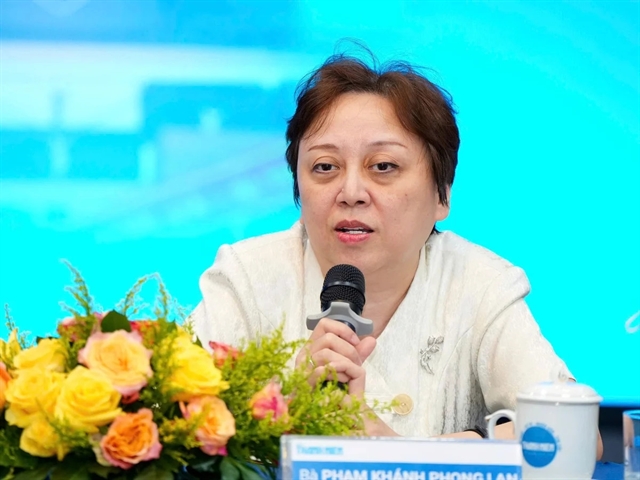
|
| Phạm Khánh Phong Lan, director of the HCM City Food Safety Department, speaks at the seminar. — Photo Độc Lập |
Phạm Khánh Phong Lan, director of the HCM City Food Safety Department, said inspections are only a superficial solution.
“The most important factors are public awareness and corporate responsibility. If consumers continue chasing cheap goods and distributors knowingly enable violations, then no amount of enforcement will make a real difference.”
“While many countries impose strict penalties and require significant compensation for violations, in Việt Nam, violators often just shut down and reopen under a new name to continue their wrongdoing.
“One critical solution lies with the consumer. In the food sector, for example, safe food simply cannot be cheap, consumers must be more selective and understand that safe production costs more than cheap, unsafe goods.”
Lan encouraged consumers to develop skills to identify fake products and protect themselves.
Nguyễn Tiến Đạt, deputy head of the HCM City market management sub-department, said the fight against counterfeit goods requires joint efforts by consumers and businesses.
He advised consumers to demand receipts and verify product origins when shopping online.
Delegates at the seminar also recommended some concrete solutions.
To avoid counterfeit medicines, Quân advised buying only from licensed pharmacies with certified pharmacists.
He warned against unverified sources like markets and social media, and urged checking packaging, expiry dates and manufacturer information and scanning barcodes.
“Always ask for a receipt and be wary of unusually low prices.”
He recommended the use of official sites like the Drug Administration of Vietnam or the manufacturer’s website to verify authenticity.
Business representatives proposed developing blockchain-based traceability solutions to enable consumers to easily verify product authenticity. — VNS


